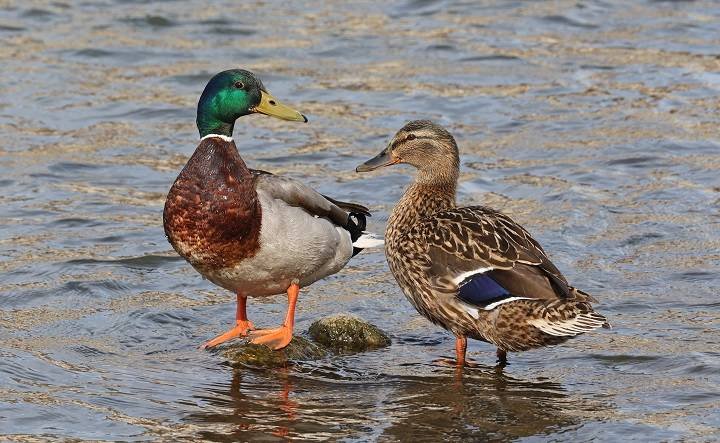
Ducks are known for their quirkiness and charming antics, but there’s a lot more happening beneath the surface of their feathers. Just like us, they have social structures, friendships, and even hierarchies. If you’re thinking about raising ducks or just want to learn more about these fascinating birds, understanding their social behavior is essential. So grab a cup of coffee, and let’s dive into the world of ducks and their companionship needs!
Why Ducks are Social Creatures
Ducks are naturally inclined to be social. They form flocks, which is a fancy way of saying they love to hang out with each other. In the wild, being part of a group provides numerous benefits—like protection from predators and easier access to food. Imagine trying to spot a sneaky fox creeping around; when ducks are together, they can alert each other to danger, enhancing their chances of survival.
Furthermore, ducks communicate in various ways, from quacking to body language. You might not realize it, but when they quack, they often convey emotions or warnings to their pals. It’s like having a whole chat room of feathered friends, where everyone knows what’s up. So, it’s safe to say that companionship is vital for their well-being.
The Importance of Companionship for Ducks
Companionship isn’t just a nice-to-have for ducks—it’s a crucial part of their health. Just think about it. When humans feel lonely or isolated, it can take a toll on their mental health. Ducks are no different. A duck that’s kept alone may become stressed, anxious, or even depressed. They thrive in communities, often forming bonds with specific companions within their group.
Having a buddy around can also reduce boredom. Ducks are curious creatures, and they enjoy exploring their surroundings. When there’s another duck around, they’re much more likely to engage in playful activities. Whether it’s splashing in a puddle or foraging for snacks, they bring joy not only to themselves but to those who get to watch their antics, too.
What Happens if Ducks are Alone?
If you leave a duck alone for too long, it might start to exhibit signs of stress. You might see behaviors like pacing back and forth or calling out more frequently. This can resemble a child looking for their playmate on the playground—confusing and unsettling! Ducks may also lose interest in their surroundings, which is alarming for such lively animals.
In the long run, chronic loneliness can lead to health problems. It’s critical to understand that while ducks can survive alone, they don’t thrive. If you’re considering bringing a duck into your home, think about getting at least two—after all, they deserve a friend!
How to Choose Companions for Your Ducks
Choosing the right companions for your ducks is key. Ideally, you want to keep ducks of similar ages together. For instance, a group of ducklings will have different social needs compared to adult ducks. They require more protection while developing social skills. Similarly, adult ducks might become territorial, especially during breeding season, making careful introductions crucial.
Another factor to consider is the breed. Some ducks are more social than others. For example, breeds like the Pekin or Muscovy are known for their friendly nature, while others may be a bit more reserved. Mixing different breeds can lead to conflicts, so be sure to research their compatibility before bringing them home.
Creating a Social Environment for Ducks
If you decide to raise ducks, creating a social environment is essential. Start by providing enough space for your ducks to roam and explore. A large, secure outdoor enclosure allows them to interact freely. You’ll also want to include duck-friendly features, like ponds or shallow pools, which encourage swimming and social engagement.
Keep the feeding area communal. Feeding ducks together not only ensures everyone gets their share, but it also fosters a sense of community. You can even add enrichment activities to keep their minds engaged—little obstacles or toys can encourage play and interaction.
Signs of Healthy Social Behavior in Ducks
So how can you tell if your ducks are happy and socially engaged? Observing their behavior is key. Healthy ducks will often be seen foraging together, grooming one another, and quacking happily. They might also display playful behaviors, such as chasing each other around or swimming in unison—these are all signs of a strong social bond.
Another great indicator is their willingness to share space. If your ducks huddle together at night for warmth or enjoy sunbathing side by side, it shows they feel secure with each other. Keep an eye out for any signs of aggression or isolation, as these can indicate issues within the group.
In a nutshell, ducks absolutely thrive on companionship. Their social nature plays a fundamental role in their happiness and well-being. Just like any of us crave connection, ducks need friends to live their best lives. Whether it’s for fun, safety, or overall health, having a buddy (or two!) makes all the difference in their world.
So, if you’re thinking about welcoming ducks into your life, consider bringing home a flock. Not only will they make adorable additions to your yard, but you’ll also be giving them the love and companionship they naturally crave. After all, a happy duck is a quacking duck!

